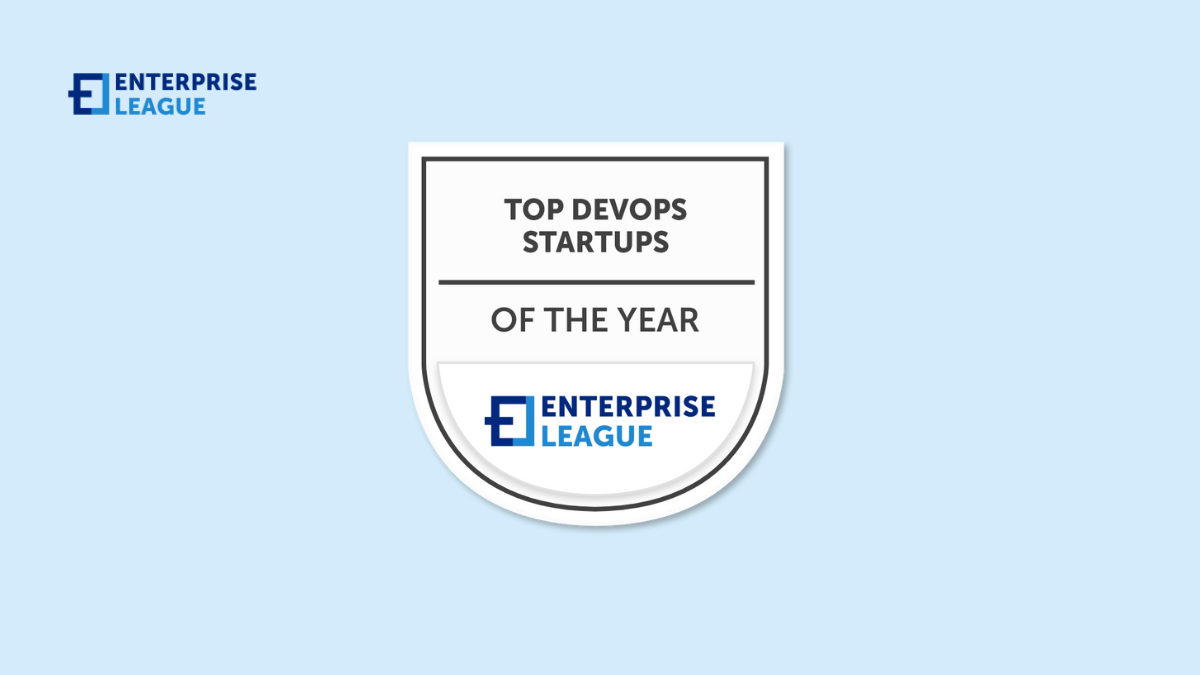DevOps has revolutionized the world of software development and IT operations by emphasizing collaboration, automation, and monitoring throughout the development lifecycle. As DevOps practices have gained popularity over the past decade, a number of DevOps startups have emerged to offer innovative tools and services aimed at helping teams fully embrace DevOps.
Top DevOps startups
Complete list of DevOps startups that are worth knowing:
BettrData
Founded in 2019, BettrData is a technology company that makes software to automate data management work. Their platform helps organize data operations for businesses so information flows faster and more efficiently. Companies today need to coordinate lots of distributed data from different apps and sources. Manually moving, improving, and securing data takes major time and effort.
BettrData offers tools that standardize and streamline these data workflows. Their software automates tasks like data collection, cataloging assets, transforming file formats, and powering analytics. It creates a centralized data workflow environment to replace fragmented manual processes between teams and tools.
OneCommons
Founded in 2019, OneCommons aims to accelerate cloud adoption by creating a vendor-neutral, community-driven alternative. Their platform offers free core infrastructure services using Kubernetes, Linux, and other open standards.
Developers can deploy cloud-native apps faster without vendor lock-in using OneCommons’ integrated toolchain. Automation and optimizations drive efficiency while maintaining flexibility.
SecuriThings
Founded in 2017, SecuriThings helps IoT ecosystem providers enhance device protection. The platform analyzes device activity in real-time to identify anomalies and prevent exploits like botnets and cryptojacking.
SecuriThings pairs device metadata with behavioral analysis for deep visibility across IoT deployments. Their holistic approach strengthens safety through coordinated device management and threat response.
Chaos Genius
Founded in 2018, Chaos Genius provides visibility and intelligence to manage Snowflake expenditures and efficiency. Their platform analyzes query patterns and advises configurations to maximize value.
Engineers can track Snowflake resource usage and spending across departments and development cycles. Automated policies prevent overspending while ensuring performance.
Harness
Founded in 2016, Harness automates and secures steps like building, testing, and deploying code changes to accelerate release velocity. Their platform provides visibility into the release process and infrastructure resources.
Harness offers capabilities including deployment release orchestration, feature flagging, error monitoring, and environment provisioning. The unified dashboard centralizes and analyzes data to enhance engineering efficiency.
ReleaseOwl
Founded in 2019, ReleaseOwl offers the first release automation platform tailored to SAP’s ABAP programming language. This optimizes processes like deployments, testing, and integrations for ECC, S/4HANA, and other SAP systems.
Pre-built templates, integration with SAP change management, and automated approvals streamline release activities. Dashboards provide visibility into SAP landscapes enterprise-wide.
XetHub
Founded in 2020, XetHub aims to streamline processes like code review, project planning, issue tracking, and repository management with Git. Their coordination features enhance transparency and alignment across functions.
Customizable workflows automate steps like code merging, testing, and deployment. Advanced analytics provide insights into contributor productivity, cycle times, and bottlenecks.
LaunchDarkly
Founded in 2014, LaunchDarkly enables developers to deploy new features to a percentage of users for testing before a full rollout. This progressive delivery model allows assessing feature impact and getting feedback.
Teams can toggle features on/off remotely without re-deploying code. Integrations with CI/CD and monitoring tools provide control throughout the dev lifecycle. Granular targeting and analytics guide strategy.
Netlify
Founded in 2014, Netlify aims to simplify and consolidate modern web project workflows onto one platform. Their Jamstack model optimizes site performance while automating DevOps processes like deploys and scaling.
Developers connect sites and Git repositories to Netlify for continuous deployment previews, split testing, and global serverless hosting. The platform provides APIs, forms, identity services, and more out-of-the-box.
Honeycomb
Founded in 2016, Honeycomb aims to give engineers comprehensive visibility into app issues and customer experiences. Their observability platform centralizes and correlates metrics, logs, and traces to speed diagnosis.
Developers can drill down into granular request data in production to identify bottlenecks and errors quickly. Intuitive tooling simplifies analyzing performance events and transactions.
Split
Founded in 2015, Split provides capabilities for incrementally rolling out new features and measuring their performance. Teams can target user segments and track key metrics to guide development.
Split’s feature flags, experimentation framework, and integration capabilities optimize release velocity. New features can be deployed to subsets of users first to catch issues before general availability.
Armory
Founded in 2016, Armory extends the popular open source Spinnaker project for enterprises. They offer managed hosting, additional features, and 24/7 monitoring and support.
Developers can use Armory’s enterprise-grade Spinnaker platform to optimize CI/CD pipelines across hybrid cloud environments. Scalable infrastructure and automation accelerate deployments.
Embrace
Founded in 2020, Embrace aims to give developers better visibility into issues impacting user experiences. Their APM correlates metrics, logs, and traces to speed troubleshooting.
Key capabilities include real user monitoring, error tracking, open telemetry support, and CI/CD integrations. Custom dashboards simplify analyzing transactions, exceptions, and other performance data.
Pulumi
Founded in 2017, Pulumi lets developers use familiar languages like JavaScript, TypeScript, Python, and .NET to declare desired cloud resources instead of YAML or domain-specific tools.
This declarative approach allows reusable components and automation to minimize manual configurations. Multi-cloud deployments, policy controls, and collaboration features enhance productivity.
Komodor
Founded in 2018, Komodor offers an alternative to traditional logging and metrics monitoring. Their tools reconstruct request flows across microservices to pinpoint root causes faster.
Smart dashboards visualize dependencies and anomalies in Kubernetes clusters and distributed applications in real-time. Automated remediations can be triggered based on alerts.
LogRocket
Founded in 2015, LogRocket records videos and logs of exactly what users do in web and mobile apps. Teams can replay sessions to identify usability issues and see problems first-hand.
Advanced analytics surface conversion funnels, performance impacts, errors, and other trends across visits. Query tools empower investigating specific user actions and drop-off points.
Fly
Founded in 2019, Fly aims to optimize performance, availability, and security of modern web apps through an edge delivery model. Apps deploy to a network of edge locations near concentrations of users.
Teams can develop, deliver, and scale apps worldwide on Fly’s unified edge platform. Built-in collaboration features accelerate deployments across internal and external stakeholders.
Codefresh
Founded in 2014, Codefresh allows developers to define pipelines as code using YAML for easy reuse and configuration. Integrations with GitHub, Docker, Kubernetes, and testing tools provide end-to-end automation.
Teams can create complex workflows triggered by code changes to build, test, integrate, and deploy automatically. Clustering, caching, and queue management optimize pipeline performance.
Faros
Founded in 2020, Faros applies AI to generate insights from repository, tooling, and business data across the dev lifecycle. Engineering and business leaders gain visibility into velocity, quality, costs, team health, and more.
Actionable dashboards and benchmarks guide operational improvements and planning. Prioritization, risk analysis, forecasting, and recommendations enhance data-driven decision making.
Dagger
Founded in 2020, Dagger provides a combination of workflow engine, managed cloud infrastructure, and SDKs to automate deploying to the cloud from code commit to production.
Developers can define reproducible environments and deployment workflows through Dagger’s declarative framework. Pre-built integrations accelerate setup with tools like GitHub, Jenkins, and Kubernetes.
CodeNotary
Founded in 2018, CodeNotary aims to establish trust in code provenance and ownership. Developers can store authenticated code commits in CodeNotary’s immutable ledger. Audits validate code is unchanged.
CodeNotary also integrates with CI/CD pipelines to continuously validate deployments match developer-approved versions. Policies can enforce checks before releases.
Conclusion
From sophisticated automation tools, to enhanced collaboration platforms, to robust monitoring solutions, these emerging DevOps are dringful change across the industry.
Discover more creative startups that might interest you:
- Creative renewable energy startups that are on a mission to cleaner Earth.
- Innovative gaming startups that are improving the gaming industry
- Must-know esports startups shaping the future of interactive entertainment.
- Must-know blockchain startups revolutionizing the industry.
- Top productivity tools startups that reduce distractions and improve team alignment.
Related Articles
10 business tips for beginners to help you build a healthy brand
Starting a business can be quite the challenge especially if you’re all new to entrepreneurship. These business tips for beginners will help you set off on the right foot.
SEO writing: Five foolproof tips to secure you the first page
When it comes to SEO writing it’s more guessing and less evidence about what works and what doesn’t. Luckily, we know what can really help you reach the first page.
How to onboard a new employee: Tips for quick integration
Your guide to smoother employee onboarding where you will find practical strategies that help new hires feel welcome and become productive team members faster.
10 business tips for beginners to help you build a healthy brand
Starting a business can be quite the challenge especially if you’re all new to entrepreneurship. These business tips for beginners will help you set off on the right foot.
SEO writing: Five foolproof tips to secure you the first page
When it comes to SEO writing it’s more guessing and less evidence about what works and what doesn’t. Luckily, we know what can really help you reach the first page.








